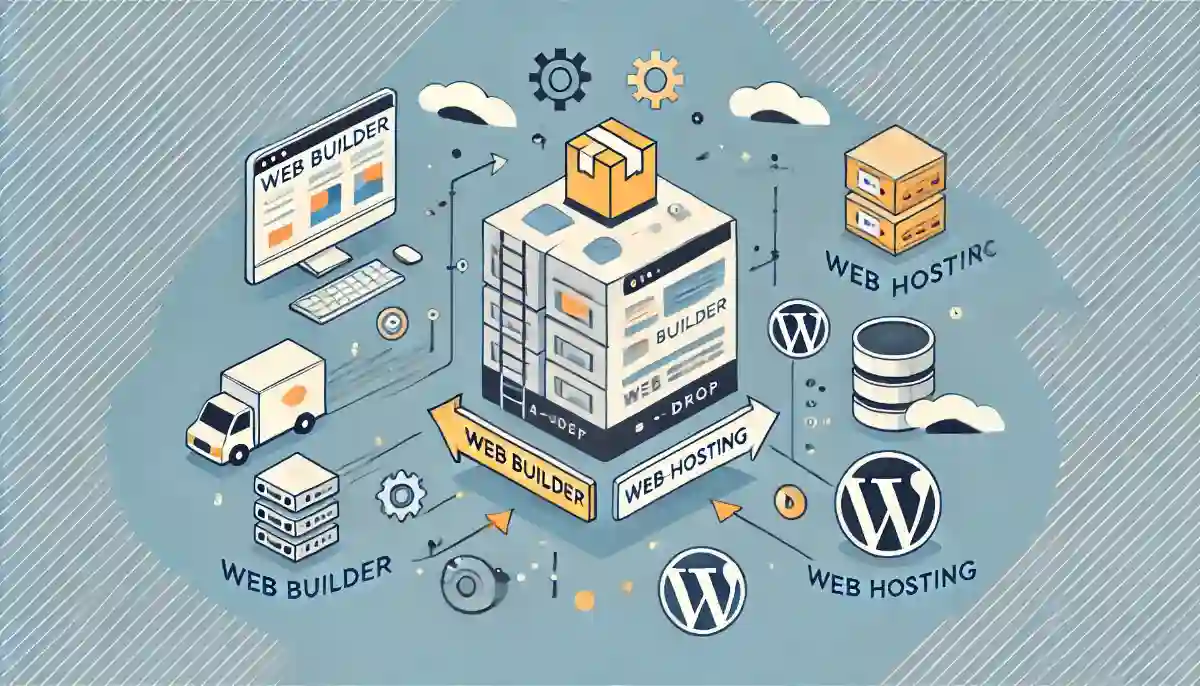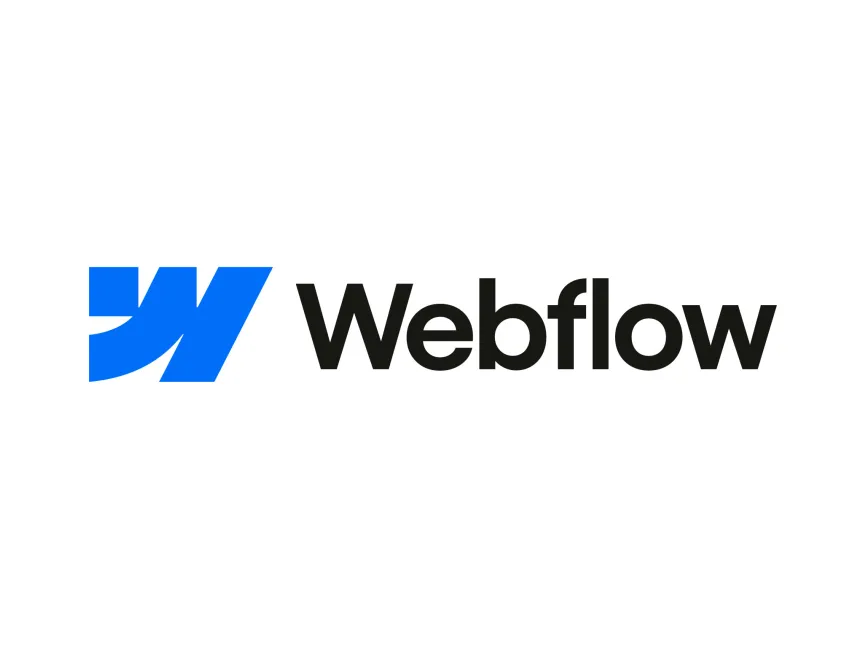E-commerce Made Easy: Web Builder or Web Hosting - Which is the Better Choice?
- September 6, 2024 / Web Builder Insights.
In today's digital landscape, setting up an e-commerce business has never been easier. Entrepreneurs have access to countless tools and platforms designed to simplify the process of building and launching an online store. However, one of the first and most crucial decisions you'll face is choosing between two primary options for creating your site: web builders or web hosting.
Both have their merits, but web builders are rapidly becoming the preferred choice for many online businesses, especially for those who prioritize simplicity, security, and the power of artificial intelligence (AI). In this article, we’ll take a deep dive into both options, explore their strengths and weaknesses, and explain why web builders are often the better choice for e-commerce entrepreneurs.
Additionally, we’ll examine how web builders' integrated security features surpass traditional web hosting solutions like WordPress with WooCommerce, which are more vulnerable to hacking.

| Feature | Web Builder | Web Hosting |
|---|---|---|
| Ease of Use | Extremely user-friendly, no coding required | Requires technical knowledge or hiring a developer |
| Speed of Setup | Launch your store in minutes or hours | Can take days or weeks to set up |
| Cost | More affordable, typically includes hosting | Can be more expensive, hosting and e-commerce platform are separate costs |
| Customization | Offers a good degree of customization through themes and apps | Unlimited customization, but requires technical expertise |
| Scalability | Can handle moderate traffic and growth | More scalable for high-traffic and large stores |
| Security | Built-in security measures and regular updates | Security depends on your hosting provider and your own efforts to secure Wordpress |
| AI Integration | Many Web Builders are incorporating AI features | AI integration requires additional plugins or custom development more charger |
| Support | Dedicated support teams available | Support varies depending on your hosting provider |
Before diving into the specifics of why web builders are a better fit for most e-commerce businesses, it’s important to define each option clearly:
Web Builder: A web builder is a platform that provides everything you need to create a website—design tools, hosting, domain registration, e-commerce functionality, and more—all in one place. Popular web builders include platforms like Wix, Shopify, Jimdo, Zyro, and Squarespace. These platforms come with drag-and-drop editors and pre-designed templates, allowing users to build professional websites without needing coding skills.
Web Hosting: Web hosting involves renting server space to host your website. You can use a Content Management System (CMS) like WordPress or Magento to build your site. For e-commerce, many people pair WordPress with WooCommerce, a popular plugin that adds e-commerce functionality. While web hosting provides more control over design and functionality, it requires significantly more technical expertise to manage the server, security, and software updates.
For most e-commerce entrepreneurs—especially those without advanced technical skills—web builders offer numerous advantages over traditional web hosting. Here are the key reasons why web builders should be your top choice:
One of the biggest reasons to choose a web builder over web hosting is the simplicity and ease of use. Web builders are designed to be user-friendly and accessible to everyone, regardless of their technical background. These platforms typically feature drag-and-drop editors that allow users to visually arrange elements such as text, images, and buttons on a webpage.
For instance, platforms like Wix and Shopify allow you to build an entire e-commerce store without writing a single line of code. You simply choose from a variety of pre-designed templates, customize them to fit your brand, and add products using straightforward tools. With these platforms, even someone with zero web development experience can have a professional-looking store up and running within a few hours.
In contrast, web hosting solutions like WordPress + WooCommerce require a much steeper learning curve. Setting up a WordPress site involves selecting and configuring themes, installing plugins, and managing your hosting settings. WooCommerce adds another layer of complexity, requiring users to configure payment gateways, taxes, shipping, and product inventory—all while managing security updates and backups. For entrepreneurs who aren’t tech-savvy, this can be overwhelming and time-consuming.
One of the most compelling advantages of modern web builders is their integration of artificial intelligence (AI) to streamline the website creation and management process. AI tools have revolutionized web design by offering smart automation that saves users time and effort, making web builders an even more appealing choice for entrepreneurs who want to focus on growing their business rather than managing technical details.
For example, Wix ADI (Artificial Design Intelligence) allows users to create a website by answering a few simple questions about their business and preferences. The AI system then automatically generates a fully functional, tailored website with appropriate colors, fonts, and layouts—all without requiring the user to make individual design decisions. This is especially useful for entrepreneurs who need a professional site but lack design skills or the time to learn them.
Similarly, Hostinger offers a range of AI-powered tools that significantly enhance the website-building experience. One standout feature is Zyro’s AI Writer, which can generate content for your site, such as product descriptions, blog posts, and landing page copy. This is particularly valuable for e-commerce businesses that need to add lots of product listings but don’t have the time or resources to write the content manually.
Another AI feature in Hostinger is the AI Heatmap tool, which analyzes user behavior on your site and predicts where visitors are most likely to click. This insight allows you to optimize the layout of your e-commerce store, strategically placing call-to-action buttons, product images, and key information in the most impactful locations to maximize conversions.
These AI-powered features are unique to web builders and provide substantial benefits for e-commerce businesses, allowing them to create effective, professional sites quickly and easily—something that simply isn’t available with traditional web hosting and CMS solutions.
Security is one of the most critical considerations for any e-commerce business. You’ll be handling sensitive customer information—such as payment details and personal data—so ensuring that your site is secure is of utmost importance. Web builders excel in this area because they come with built-in security features that are managed by the platform itself, leaving you free to focus on your business.
When you use a platform like Shopify or Wix, you can rest easy knowing that security measures such as SSL certificates, firewalls, and regular security updates are automatically handled by the platform. You don’t need to worry about configuring security settings or installing additional plugins to protect your site from hackers. Additionally, many web builders offer automatic backups and DDoS protection, further safeguarding your site from potential attacks.
On the other hand, WordPress (paired with WooCommerce for e-commerce functionality) presents a greater security risk. WordPress is the most widely used CMS in the world, which makes it a prime target for hackers. The platform’s reliance on third-party plugins is a double-edged sword: while plugins extend functionality, they also introduce vulnerabilities. Outdated or poorly maintained plugins are a common attack vector for hackers, and many WordPress sites have been compromised as a result.
WooCommerce, as an open-source platform, requires users to manage their own security measures. This means configuring firewalls, regularly updating plugins and themes, and monitoring for potential vulnerabilities. Unfortunately, not all users are vigilant about keeping their systems up to date, and this negligence can result in serious security breaches. Moreover, self-hosted WordPress sites are more likely to experience hacking incidents, data breaches, and malware infections, which can jeopardize your business and damage your reputation.
Another key benefit of web builders is the all-in-one convenience they offer. These platforms bundle everything you need to create and manage your e-commerce store—design tools, hosting, domain registration, security features, and e-commerce functionality—into one easy-to-use solution. This integration eliminates the need to juggle multiple services and plugins, streamlining the process of setting up and running your online store.
For example, Shopify is designed specifically for e-commerce businesses. It includes integrated payment gateways, shopping cart functionality, inventory management tools, and built-in tax and shipping calculators. This means that everything you need to run your store is already provided by Shopify, and you won’t need to spend time searching for third-party plugins or manually configuring complex settings.
In contrast, with web hosting, you’ll need to piece everything together yourself. After purchasing hosting, you must install WordPress (or another CMS), configure WooCommerce for e-commerce functionality, and install additional plugins for features like SEO, security, and backups. Managing all these components requires technical knowledge, and keeping everything up to date can be a time-consuming process.
Time is a valuable resource for entrepreneurs, and one of the major advantages of web builders is that they allow you to get your e-commerce store online quickly and efficiently. Most web builders provide a streamlined setup process that guides users through the steps of creating a store, from choosing a template to adding products and connecting payment gateways. You can often go from concept to live store in just a few hours.
Platforms like Wix and Shopify are designed with rapid deployment in mind. Pre-designed templates mean you don’t need to spend weeks developing a custom theme, and the intuitive drag-and-drop interface makes it easy to arrange your site’s layout without any coding knowledge.
In contrast, building an e-commerce site using web hosting is a slower and more labor-intensive process. Setting up hosting, installing WordPress, configuring WooCommerce, selecting and customizing a theme, and installing essential plugins can take days or even weeks—especially if you’re not familiar with the technical aspects of web development.
For entrepreneurs who want to launch their business quickly, web builders provide a clear advantage in terms of speed and ease of setup.
Web builders also excel in their ability to optimize websites for SEO and personalize the user experience using AI-powered tools. In today’s competitive e-commerce environment, ensuring that your website ranks well in search engine results and provides a tailored experience for visitors can significantly impact your success.
For example, Wix SEO Wiz is an AI-powered tool that helps users improve their site’s SEO by providing personalized recommendations. It walks users through the process of keyword research, on-page optimization, and technical improvements to help improve their site’s visibility on search engines like Google.
Shopify and Hostinger also offer AI-driven personalization tools that can help e-commerce businesses increase conversions. These tools analyze user behavior to automatically recommend relevant products to visitors based on their previous interactions with the site. By providing personalized recommendations, you can create a more engaging shopping experience and improve customer retention.
In contrast, optimizing a WordPress site for SEO requires more manual effort. You’ll need to install an SEO plugin (such as Yoast SEO) and configure it yourself. While WooCommerce is powerful, it lacks the built-in AI tools found in web builders, meaning that you’ll need to invest more time and effort in optimizing your site for SEO and personalization.
As your business grows, your website needs to be able to scale to handle increased traffic, product listings, and sales volume. Web builders like Shopify are designed with scalability in mind, allowing users to upgrade their plans as their business expands. This means you can start with a basic plan and gradually upgrade to accommodate more products, visitors, and sales.
For example, Shopify offers a range of plans designed for businesses of different sizes, from small startups to large enterprises. As your store grows, you can upgrade your plan to access more advanced features, higher bandwidth limits, and additional support without worrying about the technical aspects of scaling your website.
Scaling a WordPress + WooCommerce site, on the other hand, is more complicated. As your site grows, you may need to upgrade your hosting plan, optimize your database, and install performance-enhancing plugins to handle increased traffic. Managing this process requires technical expertise, and failure to properly optimize your site can result in slower load times, crashes, and lost revenue.
One of the major benefits of using a web builder is that it significantly reduces the amount of maintenance required to keep your site running smoothly. Web builders handle all of the technical details—security updates, software patches, server maintenance, and backups—on your behalf.
For instance, platforms like Wix and Shopify automatically update their systems to protect against new security threats and ensure that your site remains secure and functional at all times. You don’t need to worry about manually installing updates or troubleshooting issues, as the platform takes care of everything behind the scenes.
In contrast, maintaining a WordPress + WooCommerce site requires ongoing vigilance. You’ll need to regularly update plugins, themes, and the WordPress core to protect your site from vulnerabilities. Failure to stay on top of updates can leave your site vulnerable to hacking attempts, malware, and other security risks.
Conclusion: Why Web Builders Are the Best Choice for Most E-Commerce Stores
For the majority of e-commerce entrepreneurs—especially those without technical expertise—web builders are the superior choice. They offer a combination of ease of use, AI-powered features, robust security, and all-in-one convenience that makes them the ideal platform for launching and managing an online store. Additionally, web builders provide the peace of mind that comes from knowing your site is secure, up-to-date, and optimized for success.
While WordPress with WooCommerce offers more customization options for advanced users, it also comes with greater security risks and requires significantly more maintenance and technical knowledge. For most small-to-medium-sized e-commerce businesses, web builders provide all the functionality and scalability needed to grow without the headache of managing complex technical issues.
If you're just starting out or value simplicity and speed, I wholeheartedly recommend going with a Web Builder. They're incredibly user-friendly, packed with features, and often more affordable than Web Hosting. Plus, the AI-powered capabilities are a game-changer, helping you create a more engaging and successful online store.
Remember, building a thriving e-commerce business takes more than just a website. You'll need to focus on product selection, marketing, and customer service. But by choosing the right platform, you can set yourself up for success from the get-go.
So, what are you waiting for? Dive into the world of Web Builders and start building your e-commerce empire today!
In conclusion, web builders provide the best solution for entrepreneurs looking to build a successful e-commerce store quickly, securely, and efficiently. With the added power of AI-driven tools, they enable business owners to stay ahead of the competition, focus on their customers, and grow their business in a rapidly evolving digital world.
Want to learn more? Here are our top choices |
||
1Most PopularWIX
|
AI-Powered Design Tools. Pre-Designed Templates | View Plans |
2
|
Top Choice for Agencies and Freelancers. AI Power Tools | View Plans |
3
|
Great service, unbeatable prices, budget-friendly for sure. More Ai | View Plans |
| Our Best Web Builder Sites | |
|---|---|
 Read More Read More |
Visit Site > |
 Read More Read More |
Visit Site > |
 Read More Read More |
Visit Site > |
 Read More Read More |
Visit Site > |
 Read More Read More |
Visit Site > |